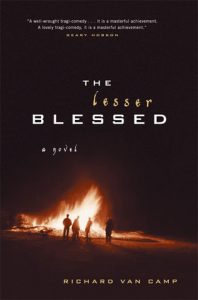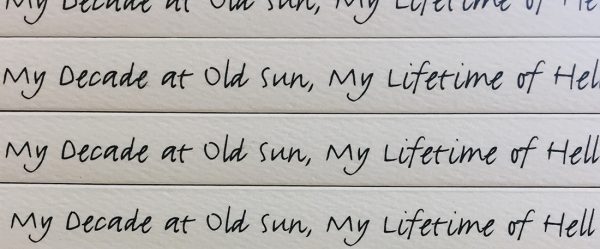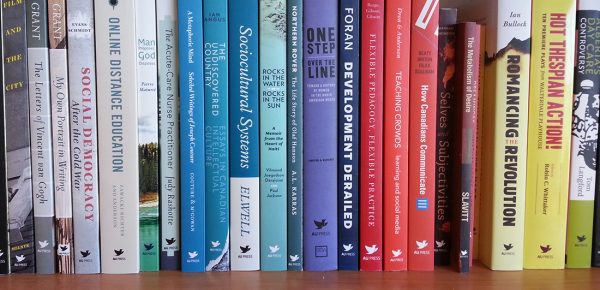June 21 marks National Indigenous Peoples Day in Canada. This day is an essential celebration of the contributions of Indigenous peoples and an acknowledgement of their experiences, stories, and culture. At AU Press, we work with stories and experiences every day in the form of research and literature and we are continually reminded that listening is one of the most important steps on the path towards healing. Reading and interacting with the stories of Indigenous peoples is one of the ways we can listen.
The RISE Book Club is a reading group founded by Reconciliation in Solidarity Edmonton—a group of citizens in the Edmonton region committed to supporting reconciliation in words and actions. They started their book club by reading all ten volumes of the Truth and Reconciliation Commission’s report over the course of a year. Since then, they have read memoirs, short stories, poetry, and essays with the goal of moving reconciliation forward in Edmonton. The “What We’ve Read” tab on their website (risebookclub.ca) has become an excellent resource and a good place to start learning.
For National Indigenous People’s Day, we would like to share quotes from some of the recent RISE Book Club reads.
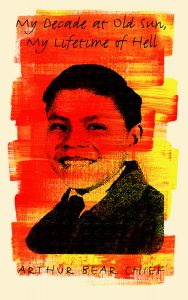 My Decade at Old Sun, My Lifetime of Hell by Arthur Bear Chief (2016, AU Press)
My Decade at Old Sun, My Lifetime of Hell by Arthur Bear Chief (2016, AU Press)
“I, Arthur Bear Chief, owe my resilience to our ancestors and elders for instilling in me a spirit strong enough to survive what I went through in residential school. We survivors left the residential schools with so many scars that we would carry for the rest of our lives. Eventually these scars would lead many of us to an early death. A few of us managed to prosper in careers, to live a comfortable life and raise a family, but this wasn’t because of anything we were taught in residential school. It was a testament to our Indian spirit and our determination to overcome obstacles even in the most difficult situations.”
We are honoured to have been a part of the launch of the RISE Book Club last March at City Hall. Arthur Bear Chief spoke at the event about his residential school experiences and why he chose to write about them. Find the highlights here.
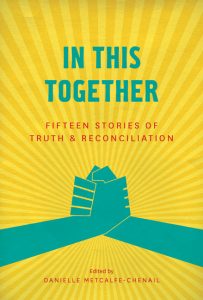 In This Together: Fifteen Stories of Truth and Reconciliation edited by Danielle Metcalfe-Chenail (2016, Brindle & Glass)
In This Together: Fifteen Stories of Truth and Reconciliation edited by Danielle Metcalfe-Chenail (2016, Brindle & Glass)
Justice Murray Sinclair speaking to Shelagh Rogers about the writing of the Truth and Reconciliation Commission’s Final Report: “We didn’t invent these ideas, we didn’t create these ideas from nothing. We listened to what people said and we measured them against the vision of Canada we got people to talk about. The vision of Indigenous societies that people spoke to us about. The vision for the future that they wanted to have in this part of the world. And our calls to action were really intended to be a reminder that this is what you want. You want to have a good, healthy relationship among yourselves—Aboriginal and non-Aboriginal people. You want to have a situation in which the things that drive us apart are weaker than the things that pull us together. You want to ensure that your children can grow up side by side and talk to, and about, each other with great respect and mutuality in their view about the future. So here’s how to do it.”
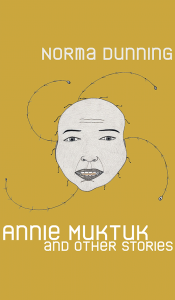 Annie Muktuk and Other Stories by Norma Dunning (2017, University of Alberta Press)
Annie Muktuk and Other Stories by Norma Dunning (2017, University of Alberta Press)
“In strolls Annie Mukluk in all her mukiness glory. Tonight she has gone traditional. Her long black hair is wrapped in intu’dlit braids. Only my mom still does that. She’s got mukluks, real mukluks on and she’s wearing the old-style caribou parka. It must be something her grandma gave her. No one makes that anymore. She’s got the faint black eyeliner showing off those brown eyes and to top off her face she’s put pretend face tattooing on. We all know it’ll wash out tomorrow.”
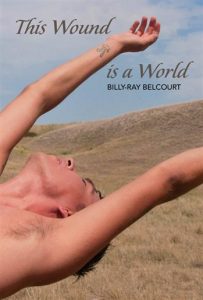 This Wound is a World by Billy-Ray Belcourt (2017, Frontenac House)
This Wound is a World by Billy-Ray Belcourt (2017, Frontenac House)
“i asked the earth to hold all of me and it said i can’t, that it was too tired to keep all of us in the world anymore.” From “Love and Other Experiments”
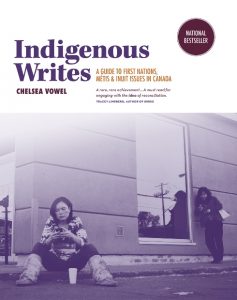 Indigenous Writes: A Guide to First Nations, Métis & Inuit Issues in Canada by Chelsea Vowel (2016, Portage & Main Press)
Indigenous Writes: A Guide to First Nations, Métis & Inuit Issues in Canada by Chelsea Vowel (2016, Portage & Main Press)
“When we remind ourselves we are speaking to other human beings who have families, who face diverse challenges, and who have diverse aspirations for a better life, it becomes easier to process those emotions. What we cannot do is pretend the subject matter is anything but difficult. Sometimes we will simply have to agree to disagree. At the end of the day, we are all still going to have to figure out how to relate to one another. We begin that process by understanding the fundamental issues.”
You can join the book club at any time. The next book is The Lesser Blessed by Richard Van Camp (2016, Douglas & McIntyre). Head to the RISE Book Club website for more information.
